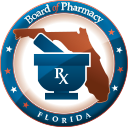A look at FDA’s attempts to address compounding over the last 20 years shows numerous approaches that were derailed by constant challenges to the law. As a result, presently, it is unclear where in the country Section 503A is in effect, and Section 503A itself includes several provisions that have impeded FDA’s ability to effectively regulate pharmacy compounding practices including those relating to prescription orders, medical need, and copying FDA-approved products.
Apart from Section 503A, there are additional provisions in the statute that have impeded effective pharmacy compounding regulation. For example, if certain criteria are met, the FD&C Act exempts compounding pharmacies from registration and the obligation to permit access to records during an inspection. As a result, FDA has limited knowledge of pharmacy compounders and compounding practices and limited ability to oversee their activities.
Looking Ahead
The Administration is committed to working with Congress to address the threat to public health from gaps in authorities for effective oversight of certain compounding practices. To that end, FDA has developed a framework that could serve as the basis for the development of a risk-based program to protect the public health.
Risk-based Framework
Recognizing the history of compounding practice, FDA supports the long-standing policy that all compounding should be performed in a licensed pharmacy by a licensed pharmacist (or a licensed physician), and that there must be a medical need for the compounded drug.
Further, we believe there should be a distinction between two categories of compounding: traditional and non-traditional. Traditional compounding would include the combining, mixing, or altering of ingredients to create a customized medication for an individual patient with an individualized medical need for the compounded product, in response to a valid patient-specific prescription or order from a licensed practitioner documenting such medical need. Traditional compounding, while posing some risk, plays an important role in the health care system, and should remain the subject of State regulation of the practice of pharmacy.
Non-traditional compounding would include certain types of compounding for which there is a medical need, but that pose higher risks. FDA proposes working with Congress to define non-traditional compounding based on factors that make the product higher risk such as any sterile compounding in advance of or without receiving a prescription, where the drug is distributed out of the state in which it was produced. Non-traditional compounding would be subject to Federal standards adequate to ensure that the compounding could be performed without putting patients at undue risk, and FDA would inspect against and enforce these Federal standards. Such a definition focuses on the highest risk activities and offers a uniform degree of protection across all 50 States, for highest-risk compounding activities.





